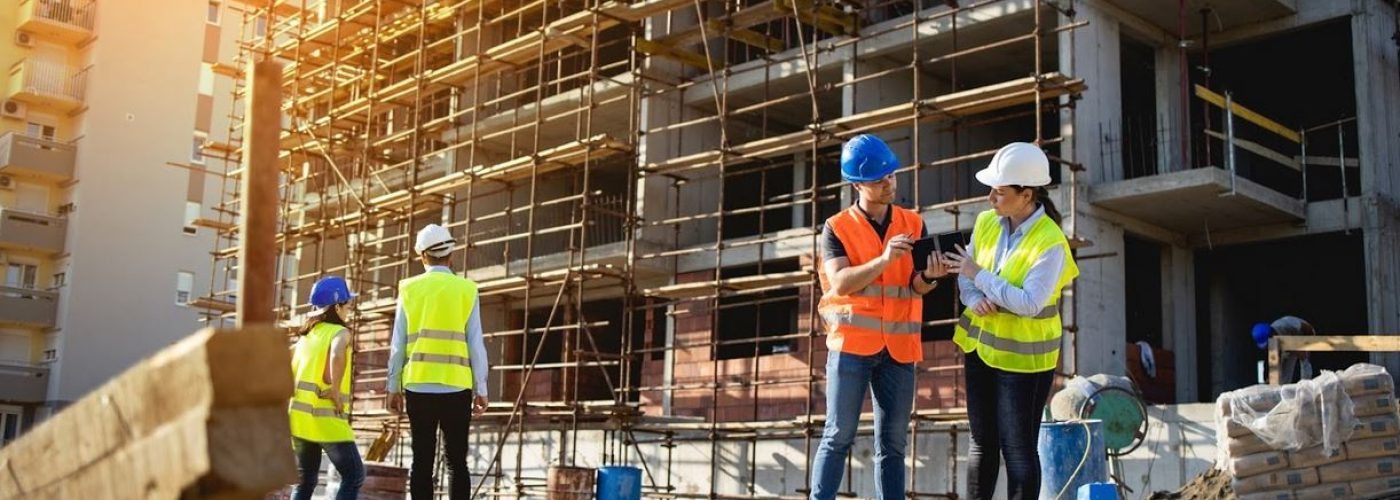Are you embarking on a construction project? Then, as the builder, you could be liable for the construction risks that come with it. Depending on the contract, your liability can be from day one, right up to the time you hand over the finished building to your client. It’s crucial that you understand the risks involved in construction projects.
A few risks to consider when starting new construction projects will be discussed below.
1. Property Damage
Building property is a risky business. From the moment you start a construction project, you’re liable until you hand over the keys to the building. Liability can come in different forms, like dumping concrete where it’s not supposed to be or accidentally reversing your construction vehicle into someone’s car. Before you begin a construction project, you have to consider different risks and come up with ways of avoiding the liabilities.
One way to avoid the risk of property damage is to make sure that your building site is clearly marked and demarcated. Also, ensuring that all safety precautions have been taken care of might save you from liabilities associated with property damage. Taking a Builder’s Risk insurance policy could also help you mitigate the financial consequences of property damage.
2. Worker Injuries
Like in most other workplaces, construction isn’t spared from the risk of worker injuries. Working with power tools could actually increase such risks. The construction industry is also exposed to hazardous materials and situations that could harm construction workers. These include working with blocks of cement and adhesives as well as working at dangerous heights or trenches.
To avoid worker injuries, you have to ensure that your construction site is safe by observing all safety protocols. This includes proper signage and markings, as well as proper lighting where it’s necessary. Helmets and other safety gear are also something worth considering to avoid worker injuries.
3. Labor Violations
While it may seem obvious that working hours should be observed, sometimes it’s easier said than done. You have to make sure that you’re up-to-date with any possible laws and regulations governing labor issues. Violating labor regulations could get you into trouble with the authorities and quite possibly cost you some money.
To avoid labor violations, you have to do things by the book. Pay your workers on time, and keep a good record of their working hours all the time. All agreements have to be on paper and explicitly spelled out. An open communication channel between you and your workers is also vital to avoid any possible conflicts and misunderstandings.
4. Bad Contractors
The construction industry is one of the sectors which has a high movement of contract workers. There’s a high risk of hiring bad contractors if you don’t do the due diligence of checking their references. Employing inexperienced contractors could cost you time and money. If a job isn’t properly done, you could be liable and would need to fix the damage. Above all, you might mess up your reputation.
Bad contractors can be an enormous liability. To avoid working with bad contractors, always make sure you do background checks, assess the work they claim to be good, and assess their mistakes Working with people you’ve worked with before can also reduce the risk of such liability.
5. Contract Violations
Contract violations are also a major liability risk. Breaching a contract with either a contractor or your client could expose you to financial liability. Always read your contracts carefully and understand them before you put your signature. Possible areas of conflict could include due dates and deliverables.
To avoid contract violations, always try to deliver on time. Also, communicate constantly with your clients to know if they have a problem. Avoid making verbal agreements and make sure that any agreement has to be in black and white. This way, you can always refer back to the contract if there’s a disagreement.
Conclusion
Construction projects can be hard work. They’re usually costly, rigorous, and prone to liability. From the smallest construction project to the biggest, builders aren’t immune to liability. Should you find yourself in a situation that leaves you liable? You’ll need to be prepared to deal with any problems along the way. Insurance companies now offer liability builder’s insurance, which generally covers most of the risks discussed. It’s always better safe than sorry when managing construction projects.






